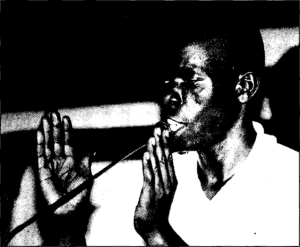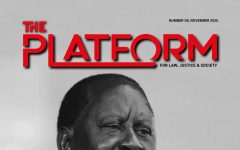There once lived a man in the early 1500 in England, known as Sir Thomas More. An astute politician and an accomplished lawyer, he was known for his wit and integrity. He was also a devout Roman Catholic whose love for God was the only one greater than his love for his family and the law.
He was the Lord Chancellor of England, appointed by King Henry VIII. The Lord Chancellor was the most senior and extremely powerful legal officer in England. He not only presided over the highest court in the land, the House of Lords, but also acted as a Cabinet Minister. He was both the Minister of Justice and the senior-most judge. He was the one who appointed the judges.
In the year 1513, Sir Thomas More collided with the King on a matter’ which he considered one of principle. This brought him into conflict with the King’s court and they began sending spies to his home. One such spy was a young academician called Rich, who had been promised a high state office if he could bring the Lord Chancellor down. Sir Thomas’ family knew Rich was spying on him and they implored him to arrest him and send him to jail. The Lord Chancellor had the power to do so. In one such incident, Rich came to the house and met Sir Thomas, his wife Alice, daughter Margaret, and a young barrister friend, Roper. Again they all implored him to arrest Rich. The playwright Robert Bolt in A Man for all Seasons dramatises their exchange.
Alice (exasperated, pointing after Rich): While you talk he is gone!
More: And go he should if he was the devil himself until he broke the law!
Roper: So you’d give the Devil the benefit of the law!
More: Yes, what would you do? Cut a great road through the law to get after the devil?
Roper: I’d cut down every law in England to do that.
More: (roused and excited) Oh! And when the last law was down, and the devil turned round on you – where would you hide, Roper, the laws all being flat? This country’s planted thick with laws from coast to coast and if you cut them down, do you really think you could stand upright in the winds that would blow then? Yes, I’d give the devil the benefit of law, for my own safety’s sake.
For over a year now, the question on how to handle ex-President Daniel arap Moi has been one of considerable concern. Many have called for a truth and reconciliation commission. Others want him investigated and prosecuted for wrongs allegedly committed in the 24 years he was in power. Already, he has been mentioned unflatteringly in the Goldenberg inquiry and been implicated by a witness in the murder of Dr Robert Ouko.
In the process of all these inquiries, little is being asked of the rights of the ex-President. One distressing incident was the testimony of former Permanent Secretary Dr Wilfred Koinange who explained his guilt away by saying he was instructed by the ex-President to illegally pay KamIesh Pattni Sh5.8 billion. When the presiding Judge sought to prevent such a casual passing of the buck, he was accused of trying to protect the previous regime.
Another is a witness before the Ouko inquiry who said he heard the ex-President give instructions for Dr Ouko to be murdered. The witness, Mr William Wakhunangabo, who was the cook of the late PS Hezekiah Oyugi, said he heard the ex-President say so at his late employer’s house where the murder plot was allegedly hatched. With the Ouko inquiry having denied persons mentioned adversely to cross-examine witnesses, the ex-President will not have a chance to extricate himself even if he can.
All these incidents and the casual manner in which the country has dealt with them does show the pain that people still feel from 24 years of Moi’s rule. The people want to feel vindicated by seeing the ex-President brought to answer to all the wrongs that occurred during his rule. They are ready to close their eyes should the government agree to cut a great road through all the laws to get at Moi. Kenyans should first ask themselves the question posed by Sir Thomas More: Where shall they run to when all the laws are down? If it happens to ex-President Moi, how shall we defend ourselves if the government turns on us and all the laws are down? The Waswahili say that if you see your friend being shaved, prepare yourself: You could be next.

ex-President give instructions for Dr Ouko to be murdered.
There would be no greater tragedy to the rule of law in this country than if we allowed all the inquiries,commissions and investigative agencies to overlook the law in order to satiate our vengeance. We could not be in greater danger than if,having heard President Kibaki’s pledge to govern by the rule of law,we now urged him to cut that great road through the law to get at ex-President Moi.
The law properly contained President Moi until we gave him that blank cheque to deal with the coup plotters of 1982.We are still mourning what he wrote on that cheque.
The liberty of a people is not measured by how bad the government treats the good citizens but how well it treats the bad ones. A legal commentator thus once stated:”It is a fair summary of history to say that the safeguards of liberty have frequently been forged in cases involving not very nice people.”
In 1956, two Kenyans known as Lamambuto and Ngwinina were arrested and charged with the murder of one Sudi Tumo. They confessed to the murder and willingly wrote and signed confessions to it. They also signed a certificate saying that the confessions were true and voluntary. During their trial they retracted the confessions. The trial judge dismissed their denials without holding an inquiry on them. Due to this failure, the appeal court quashed their conviction for murder.
It is in cases of people like Lamambuto and Ngwinina that our rights are protected. That is why, from a legal perspective, the Permanent Secretary in charge of Ethics and Governance John Githongo is correct to say that ex-President Moi’s case is special. It is in the way we deal with Moi that we shall draw the frontiers of our own liberties.
For those in government, it is by the way they deal with Mr Moi that will grant or deny licences of how they themselves shall be treated when out of power. If they hold Moi liable for every law that was broken by his appointees, then they must expect that one day they shall also have to answer for the misdeeds of their own appointees.
We may, by pursuing Moi on all fronts, create a culture by which those out of power have to bear the wrath of those they ruled; where after a regime change, every president becomes a former dictator, every minister becomes a total man, every contractor a cowboy contractor, and every land allottee a land grabber. The law will become a tool for the expression of imagined or real vengeance by people against those who were in privileged positions of government or power.
Mr Moi’s case is also special because, in many ways, it is an indication of our own failures and cowardice. The current Permanent Secretary in the Treasury, Mr Joseph Magari, was fired for not cooperating with the Goldenberg scam. Josephine Mwatela, who also courageously stood up against the scam, is still safely in the employ of the Central Bank of Kenya.
We remember the Moi days and feel guilty that we did not stand up against his increasing power. While we today stand up and courageously say we must have a new constitution immediately, we forget how we betrayed the National Convention Executive Council when it called a national strike to force Moi to give us one.
It is not that we should grant Moi an amnesty and not look into any wrongs he may have committed. To do so would be an equally catastrophic deed. We should demand to know the truth and, if any wrongdoing is proved, the government should ask him to answer. But this must be done within the confines of the law. We should not begin with an objective and then tailor the law to achieve it.
Neither should we try to lump up everything on the shoulders of one man so that we may never have to face the shame of our cowardice. We have a lot of blame to bear on the way we were ruled over the last 24 years.
Most importantly, we must be faithful to our laws and our legal procedures. They exist to protect us. They are like the virtues of a virgin which, when once violated, cannot be redeemed. We must give Moi the benefit of the law, for our own safety’s sake.
Mr Paul Mwangi is an advocate practising in Nairobi.




